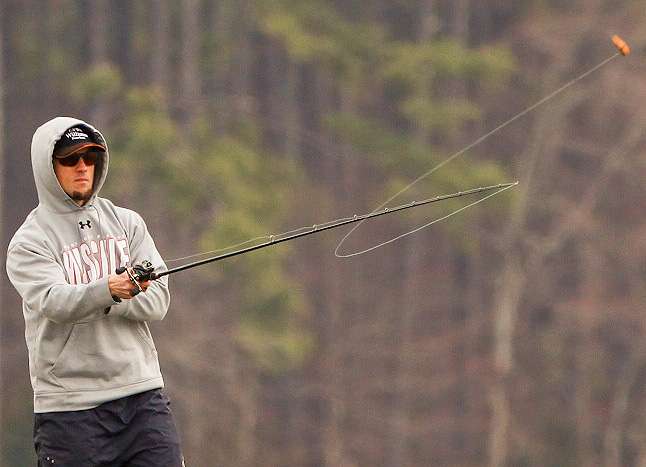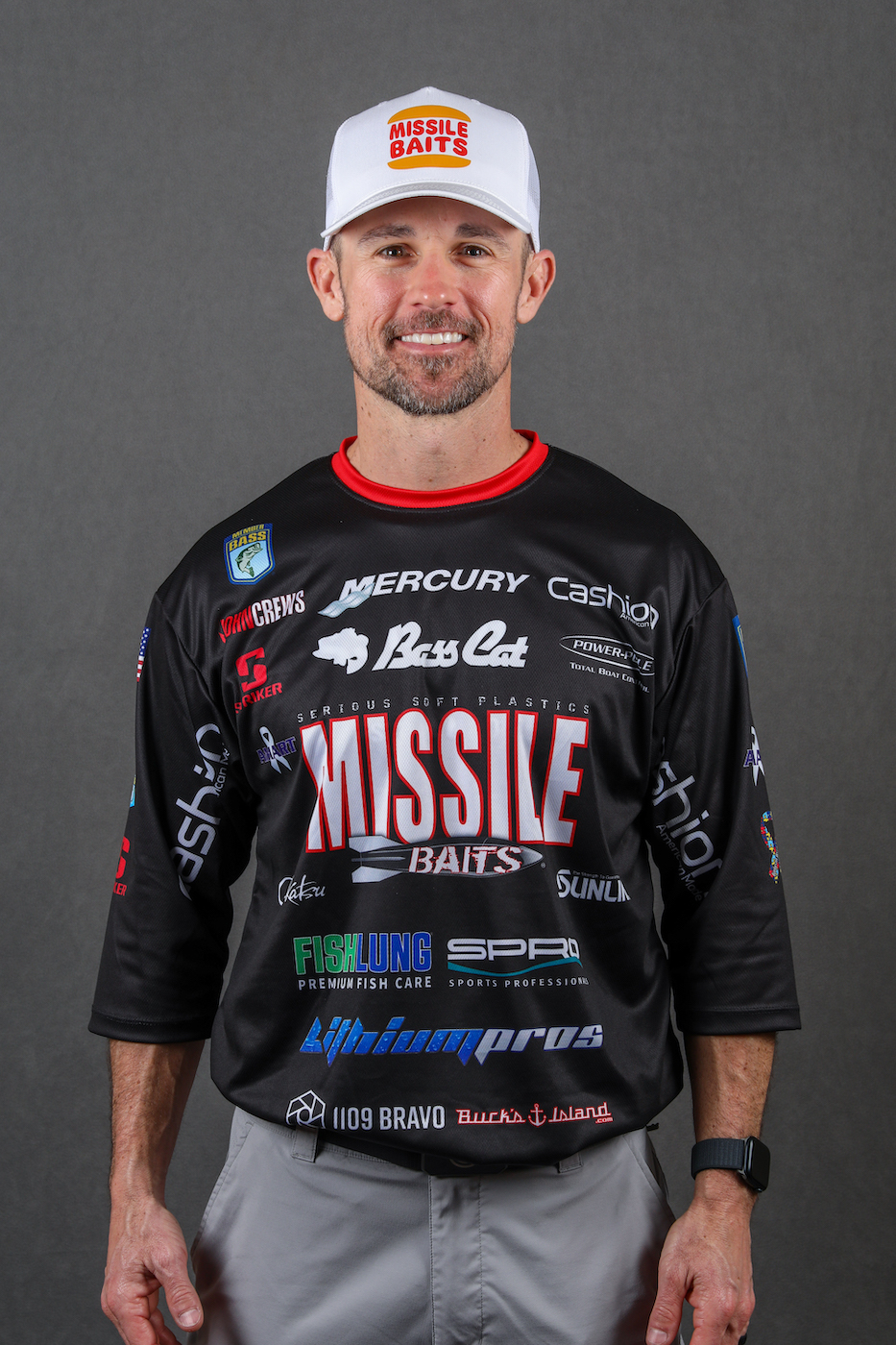
In this column I’m going to tell you about my path into the Bassmaster Elite Series, but I’ll also give you some of my thoughts about how you might get here, too. What I did isn’t the only way in but the things I learned moving up are pretty much universal among all the anglers.
I started fishing local tournaments when I was about 15 years old. My first actual bass tournament was with my cousin, Charles Morse, in our little 17-foot bass boat. We caught four bass that day. I’ll never forget it. As time went along we fished as co-anglers in BFL events and together in a handful of small team tournaments. We had some serious good times.
Once I went to college, bass tournaments turned more serious for me. I fished team tournaments with Rick Hawkins, a great angler who had fished professional events all over the country. Rick taught me about practicing from sunrise to sunset, how to deep crank and a lot more.
I also fished with the Sandy River Bassmasters. That was a great learning experience for me. The guys I fished with in that club are still friends of mine today. Towards the end of my college days I started fishing professional events as a co-angler.
The importance of those early years can’t be overstated. The experience allowed me to learn from my mistakes when the stakes weren’t all that high. I could afford to fail in those days.
That’s the first thing I would tell every angler who wants to up their game. Fish everything you can, anywhere you can, against anyone you can. Enjoy your successes and learn from your failures. Focus on seeing new things and learning everything you can about them.
After I graduated I decided to give a full-time, professional-level career a shot. It was what I wanted out of life. I was young so nothing was holding me back, and I knew if I didn’t give it a try I’d regret it for the rest of my life.
I fished B.A.S.S. and FLW tournaments in those days. I still fished as a co-angler on the FLW Tour my first year out of college, too. That was critically important to my career. It put me in the boat with real pros, guys who actually earned their living with a rod and reel. I was able to see what they did and why they did it.
Koby Kreiger, Larry Nixon, Charlie Hartley, Scott Martin, Tim Horton and a bunch of others were the guys who showed me where I was, and why they were where they were. I watched their every move and peppered them with questions. I’ll always be grateful to them for their help and their encouragement.
After college, I was able to earn enough money from tournament winnings to keep going, especially after my third B.A.S.S. event down on Lake Okeechobee where I finished third. I earned a boat — sold the next day for $22,000 — which gave me enough money to keep going until I was able to develop better sponsors. As I mentioned in one of my previous columns, I fished for about four years full time before I had a single sponsor that actually paid me money.
It took me three full years of fishing the B.A.S.S. Invitationals to qualify for the Tour. And then, in 2006, the top pros on the Tour were invited to fish the Bassmaster Elite Series. Looking back, I now realize I was a part of history. That is special.
The path up was not easy for me, and I doubt it’s been easy for anyone else. It takes a lot of work and even more dedication. You have to want it with your heart, your mind and your body. But, that isn’t any different from anything else in life, is it? If you want to be the best, you have to dedicate yourself to being the best. It doesn’t matter at what.
So here’s the way I see it:
If you want to fish at the highest level of bass fishing — the Bassmaster Elite Series — you need to develop your skills at the local level and then move up slowly. Learn everything you can from the other anglers and always try to fish with (and against) guys who are better than you. Work hard. You’ll make it.

